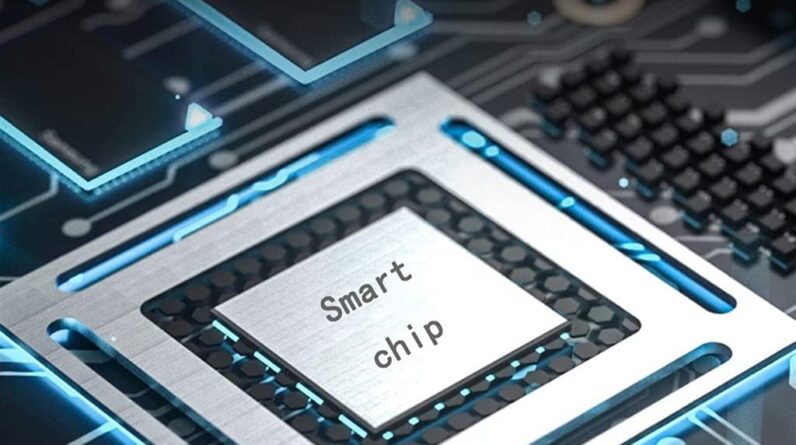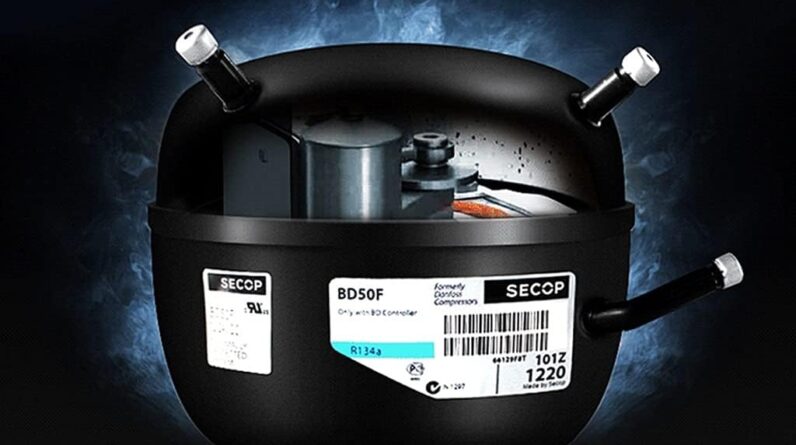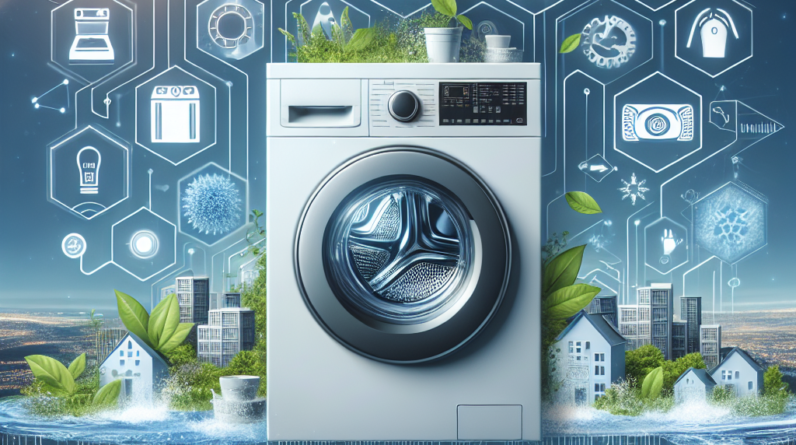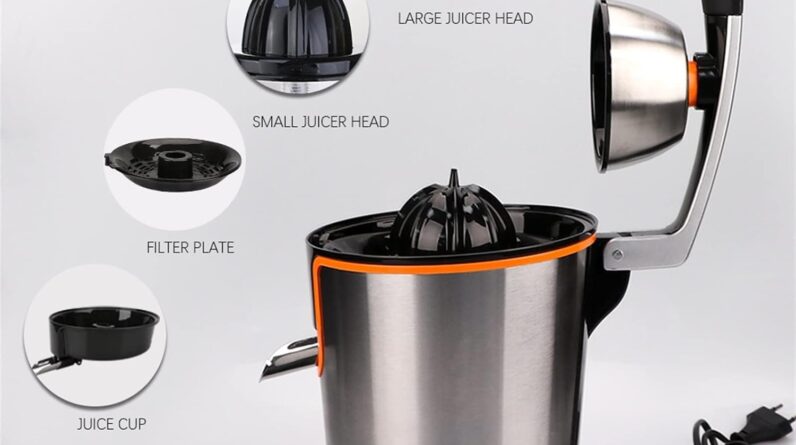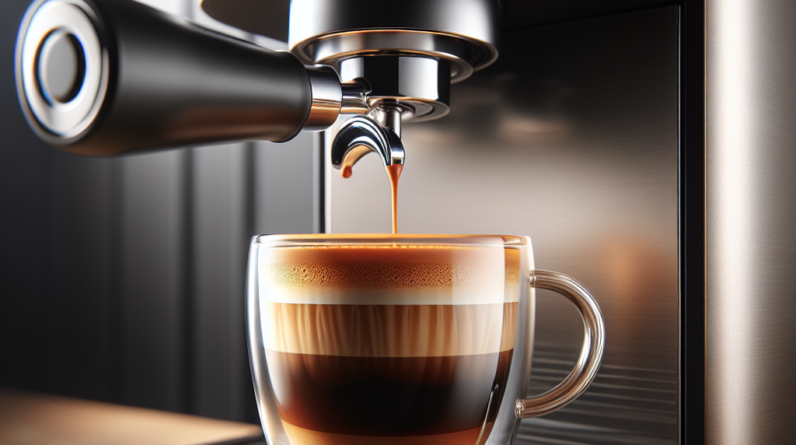
Are you looking for ways to make your microwave last longer? Well, you’re in luck! In this article, we will share a variety of helpful tips that will help you extend the life of your microwave. From cleaning and maintenance to proper usage techniques, we’ve got you covered. So, if you want to ensure your microwave stays in top-notch condition for years to come, keep reading!

Proper Cleaning
Regularly wipe down the interior
To ensure the longevity of your microwave, it is important to regularly wipe down the interior. As you use your microwave, food particles and spills may accumulate on the walls and ceiling, which can lead to unpleasant odors or even potential damage. By simply using a damp cloth or sponge, you can easily remove any residue or food splatters that have built up. Remember to unplug the microwave before cleaning, and be gentle to avoid scratching the interior surfaces.
Clean the exterior with a mild soap solution
In addition to cleaning the interior, it is also essential to give attention to the exterior of your microwave. The outside of the microwave can accumulate dirt, dust, and fingerprints, which can not only be unsightly but can also affect its overall performance. To clean the exterior, use a mild soap solution and a soft cloth or sponge. Avoid using harsh or abrasive cleaners, as they can damage the surface of your microwave. Gently wipe down the exterior, making sure to clean all the nooks and crevices.
Avoid using abrasive cleaners or scrubbing pads
When cleaning your microwave, it is crucial to avoid using abrasive cleaners or scrubbing pads. These harsh cleaning agents can cause scratches or damage to the interior and exterior surfaces of your microwave. Instead, opt for gentle cleaning solutions and materials that are specifically designed for microwave cleaning. Using non-abrasive options will help to maintain the integrity of your microwave and prolong its lifespan.
Avoid Overheating
Avoid running the microwave empty
One common mistake that many people make is running the microwave empty. This can lead to overheating and potentially cause damage to the microwave’s internal components. Whenever you use your microwave, make sure there is something inside that requires heating. Even a small glass of water can serve as a suitable item to prevent overheating. Running the microwave empty may also have adverse effects on the magnetron, which is responsible for generating the microwaves used for heating food.
Use microwave-safe dishes and containers
To prevent overheating and related issues, it is essential to use microwave-safe dishes and containers. These are specifically designed to withstand the high temperatures produced by microwaves and will prevent any damage or potential hazards. Microwave-safe containers are typically labeled as such, and you can find this information on the packaging or bottom of the dish. Avoid using dishes made of metal, as they can cause sparks and damage the microwave.
Don’t exceed the recommended cooking time
Every microwave has a recommended cooking time for different types of food. It is crucial to follow these guidelines and avoid exceeding the recommended cooking time. Overcooking can not only affect the taste and quality of your food but can also lead to overheating and potentially damage the microwave. If you are unsure about the cooking time, it is always better to err on the side of caution and check your food throughout the cooking process to ensure it is heated properly and safely.

Control Power Surges
Use a surge protector
Power surges can be detrimental to the lifespan of your microwave. To protect your appliance from sudden increases in electrical voltage, consider using a surge protector. A surge protector will absorb excess electrical energy and prevent it from reaching your microwave. This is particularly important if you live in an area prone to electrical fluctuations or during thunderstorms. Investing in a surge protector can save you from potentially costly repairs or even having to replace your microwave altogether.
Avoid plugging in other high-powered appliances on the same circuit
When using your microwave, it is best to avoid plugging in other high-powered appliances on the same electrical circuit. Doing so can lead to power overload, which may cause fluctuations in voltage and potentially damage your microwave. High-powered appliances like refrigerators, dishwashers, or air conditioners can draw a considerable amount of electricity, so it is wise to allocate separate electrical circuits for such appliances.
Unplug during thunderstorms
During thunderstorms, it is advisable to unplug your microwave to protect it from power surges caused by lightning strikes. Electrical surges generated by lightning can travel through power lines and damage electronic devices if they are not properly protected. By simply unplugging your microwave during storms, you can reduce the risk of damage and extend its lifespan. It may also be a good idea to unplug other sensitive electronic devices in your home as an added precaution.
Avoid Slamming the Door
Close the microwave door gently
To extend the life of your microwave, it is important to treat it with care, especially when it comes to closing the door. Slamming the door can cause damage to the hinges, latches, and internal components. Instead, make it a habit to close the microwave door gently but firmly. This small act of mindfulness can go a long way in preventing unnecessary wear and tear, as well as potential malfunctions.
Check for any obstructions before closing
Before closing the microwave door, take a quick look to ensure there are no obstructions in the way. Sometimes, small items or food particles can get stuck in the door’s closing mechanism, hindering its proper functioning. By checking for obstructions and removing any debris, you can ensure a smooth and secure closure. This will also prevent any potential damage to the door or its components.
Avoid using excessive force
While it may be tempting to forcefully close the microwave door when in a hurry, it is best to avoid using excessive force. Applying excessive pressure can lead to misalignment of the door or damage to the hinges and latches. Treat the microwave door delicately, as it is an essential part of the appliance’s overall functionality. By practicing gentle handling habits, you can help prolong the lifespan of your microwave.
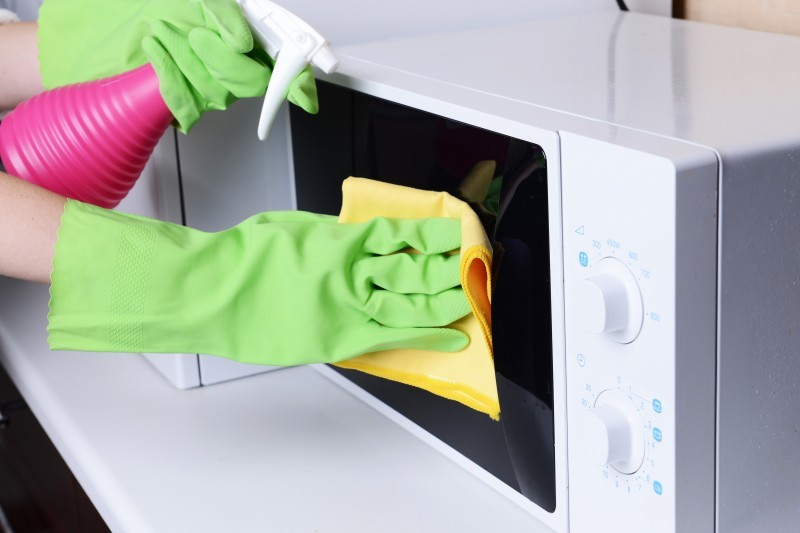
Proper Ventilation
Ensure there’s enough space around the microwave
Proper ventilation is crucial for your microwave’s performance and longevity. To ensure adequate airflow, make sure there is enough space around your microwave. The manufacturer’s guidelines usually specify the recommended clearance for ventilation. It is important to adhere to these guidelines to prevent overheating and potential damage to your microwave. Avoid placing your microwave in cramped spaces or against walls, as this can restrict airflow and lead to malfunctions.
Clean the vents regularly
The vents of your microwave play a vital role in expelling excess heat, steam, and other byproducts of the cooking process. Over time, these vents can become clogged with food debris, dust, or grease, hindering their efficiency. To maintain proper ventilation, it is essential to clean the vents regularly. You can use a soft cloth, a small brush, or a vacuum cleaner with a brush attachment to remove any accumulated dirt or debris. Regular vent cleaning will ensure optimal performance and help to extend the lifespan of your microwave.
Avoid blocking the vents with objects or decorations
As previously mentioned, proper ventilation is crucial for your microwave’s functionality. It is important to avoid blocking the vents with any objects or decorations that may obstruct the airflow. Placing items on top of the microwave or too close to the vents can limit the escape of heat and moisture, leading to overheating and potentially damaging the appliance. Keep the area around and on top of your microwave clear to ensure proper ventilation and prevent any unnecessary strain on the microwave’s components.
Prevent Steam Damage
Cover foods to prevent steam buildup
When heating or cooking food in the microwave, it is a good practice to cover the dishes to prevent steam buildup. Steam can condense on the walls and ceiling of the microwave, leading to moisture accumulation and potential damage over time. Covering your food with microwave-safe lids or microwave-safe plastic wrap will help contain the steam and minimize the amount of moisture escaping into the microwave. This simple step can go a long way in preventing steam-related damage and extending the life of your microwave.
Clean up any spills or splatters immediately
Accidents happen, and spills or splatters in the microwave are not uncommon. However, it is crucial to clean up any messes immediately to prevent steam damage. If left unattended, spills can penetrate the microwave’s interior, causing discoloration, odors, or even corrosion. Regularly check and wipe down the interior surfaces of your microwave to keep it clean and free from any spill-related damage.
Avoid using the microwave near the stove
To prevent steam damage, it is advisable to avoid using the microwave in close proximity to the stove. Steam generated during cooking on the stovetop can be released into the air and potentially enter the microwave, leading to moisture buildup. Placing the microwave away from the stove, or at least ensuring there is sufficient distance between the two, will reduce the likelihood of steam damage and maintain the optimal functioning of your appliance.

Use Microwave-Safe Utensils
Avoid using metal utensils or aluminum foil
When it comes to using utensils in the microwave, it is essential to avoid using metal utensils or aluminum foil. Metal can cause sparks and potentially damage the interior of your microwave. Instead, opt for microwave-safe utensils made of glass, ceramic, or certain types of microwave-safe plastic. These materials are designed to withstand the heat generated by microwaves without any adverse effects.
Use microwave-safe glass, ceramic, or plastic containers
Choosing the right containers for your microwave is crucial for its proper functioning and longevity. Ensure that the containers you use are labeled as microwave-safe. Glass and ceramics are excellent choices, as they are resistant to high temperatures and will not release any harmful chemicals into your food. Some plastics are also microwave-safe, but it is important to check for microwave symbols or labels indicating their safety for use in the microwave. Using the correct microwave-safe containers will prevent potential damage to your appliance and promote safer cooking.
Check for any microwave symbols or labels
When selecting utensils or containers for your microwave, it is always a good idea to check for microwave symbols or labels. These symbols indicate that the item has been tested and approved for microwave use and will not pose any hazards. Microwave-safe symbols typically consist of waves or a microwave icon. Taking the time to ensure that your utensils and containers have the appropriate symbols will help protect your microwave and ensure safe and efficient cooking.
Manage Heavy or Bulky Items
Use a rotating turntable for even heating
To ensure even heating and protect your microwave from undue stress, it is advisable to use a rotating turntable. The rotating motion allows for more uniform and efficient heating by preventing certain spots from becoming overheated while others remain cold. The turntable helps distribute the microwaves evenly, resulting in better-cooked food and reducing the strain on specific areas of the microwave’s interior. If your microwave does not come with a turntable, consider purchasing one separately to enhance its performance and prolong its lifespan.
Avoid placing heavy items directly on the turntable
While the turntable is designed to withstand a certain amount of weight, it is important to avoid placing exceptionally heavy or bulky items directly on it. Placing heavy objects can strain the turntable’s motor and potentially cause it to malfunction. If you need to heat or cook something heavy, it is best to place it on a microwave-safe dish or a microwave-safe plate instead. This will distribute the weight and reduce the strain on the turntable and its motor.
Utilize the weight limit specified by the manufacturer
Every microwave has a recommended weight limit specified by the manufacturer. It is crucial to adhere to this weight limit to prevent damage to the turntable, motor, or other internal components. Exceeding the weight limit can cause stress and strain on these parts, leading to malfunctions or premature wear and tear. If you frequently heat or cook heavy items, consider investing in a microwave with a higher weight limit to accommodate your cooking needs and ensure the longevity of your appliance.

Avoid Excessively High Temperatures
Don’t cook at maximum power for long periods
Exposing your microwave to excessively high temperatures for extended periods can lead to damage and reduce its lifespan. It is recommended to avoid cooking at maximum power settings for prolonged periods. High temperatures for a prolonged time can strain the internal components of the microwave and potentially cause malfunctions. Instead, use the appropriate power settings and cooking times as instructed in your microwave’s user manual to avoid subjecting it to unnecessary stress.
Monitor cooking times and adjust as needed
To prevent your microwave from reaching excessively high temperatures, it is important to monitor your cooking times and adjust them as needed. Overheating food can not only affect its taste and quality but can also have a negative impact on the microwave itself. By keeping an eye on the cooking process, you can prevent overheating and ensure that your microwave stays within safe operating temperatures. Regularly check your food throughout the heating or cooking process to ensure it is progressing as desired.
Allow the microwave to cool down between uses
After using your microwave, it is important to allow it to cool down before using it again. This allows the internal components to return to their normal operating temperatures and prevents overheating. If you use your microwave consecutively for multiple cooking tasks, the internal temperature may rise to levels that can be detrimental to its lifespan. By allowing the microwave to cool down between uses, you give it a chance to rest and recover, minimizing the risk of overheating and prolonging its life.
Address Issues Promptly
Contact customer support for any malfunctions or abnormalities
If you notice any malfunctions or abnormalities in your microwave’s performance, it is important to contact customer support promptly. They will be able to guide you through potential solutions or advise on whether professional repair is necessary. Ignoring or neglecting issues can lead to further damage and potentially affect the overall lifespan of your microwave. Customer support experts are trained to assist you and provide the best possible solutions to address any problems you may encounter.
Don’t attempt to repair the microwave yourself
While it may be tempting to try fixing your microwave yourself, it is strongly advised against doing so. Microwaves are complex appliances with high-voltage components that can be dangerous to handle without the proper knowledge and expertise. Attempting to repair the microwave yourself not only poses potential risks to your safety but can also result in further damage or voiding the warranty. Instead, rely on professionals who have the necessary skills and experience to diagnose and repair any issues your microwave may have.
Schedule professional maintenance checks if necessary
Just like any other household appliance, your microwave may benefit from regular professional maintenance checks. These checks can help identify any potential issues early on and address them before they develop into more significant problems. Professional technicians have the expertise to thoroughly inspect and maintain your microwave, ensuring it operates at its best. Consider scheduling regular maintenance checks according to the manufacturer’s recommendations or if you experience any recurring problems with your microwave.
By following these tips and incorporating them into your microwave care routine, you can greatly extend the life of your appliance. Proper cleaning, avoiding overheating, controlling power surges, gentle handling, adequate ventilation, prevention of steam damage, using microwave-safe utensils, managing heavy or bulky items, avoiding excessively high temperatures, and addressing issues promptly all contribute to the overall longevity and performance of your microwave. Remember, a little extra care today can save you from the hassle and expense of replacing your microwave in the future.

